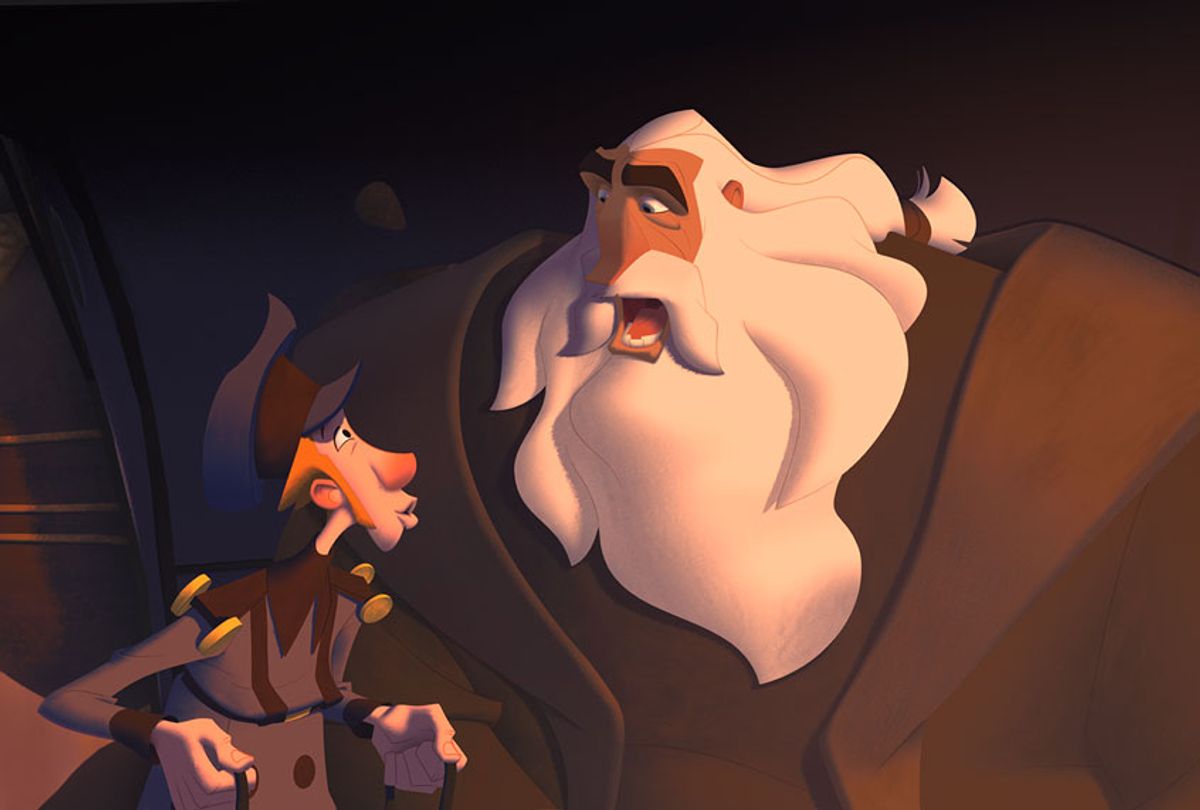“The battle bell? What kind of town has a battle bell?” This is a question posed by spoiled postman Jesper (voiced by Jason Schwartzman) about 10 minutes into the new Netflix movie “Klaus,” the streaming service’s first full-length animated feature. The answer: Smeerensberg, an icy Nordic island decorated with fish bones and torn apart by a generations-long feud between opposing clans.
It’s an unlikely point of origin for the concept of holiday cheer, but in “Klaus,” director Sergio Pablos — known for his work on the “Despicable Me” franchise — uses this grim setting to revisit the age-old story of how Christmas came to be, with some charming updates.
Jesper, the aforementioned postman, serves as the main character. After essentially flunking out of the Royal Postage Academy, he’s sentenced by his father, a tycoon figure who also runs the school, to start up a functional post office on the most dysfunctional island. If after a year he manages to have 6,000 letters come through his office, he won’t be cut out of the family fortune.
Jesper is immensely selfish, but hard to dislike; think Kuzco from “The Emperor’s New Groove” in a winter coat — or, since it is Jason Schwartzman after all, Max from “Rushmore” grown just slightly older and dropped into the tundra.
Once he reaches the island with the help of surly ship captain Mogens (Norm Macdonald), Jesper finds a quick friend in teacher-turned-fishmonger Alva (Rashida Jones). She gave up on her dream of running a school once she realized that the town’s feuding clans — led by eerie, Tim Burton-esque characters voiced by Joan Cusack and Will Sasso — refuse to let their children fraternize with the enemy. The rift in the town runs so deep that daily battles are held in the main square (hence the battle bell). That doesn’t leave a lot of time to send letters.
But Jesper finds a workaround. He stumbles across Klaus (voiced brilliantly J.K. Simmons), a giant of a man who has become something of a recluse. He’s a skilled woodworker, and with a little prodding from Jesper, turns his talents towards making toys for the town’s children; the only catch is, they have to send Klaus a letter requesting what they want, while detailing any selfless acts of kindness they’d recently performed.
This soon sparks a burgeoning culture of kindness among the Smeerensberg youth — though their parents are a little harder to win over. With Christmas, and the one-year anniversary of Jesper’s arrival in town, approaching, it’s going to take something more drastic to bring peace and goodwill to everyone.
Though there are some narrative blips in “Klaus” born out of a premise that is maybe just a little too complex for a 97-minute film, the movie is absolutely beautiful. Pablos, who worked on Disney classics like “Tarzan” and “Hercules,” didn’t just return to hand-drawn animation; he used new software to add light and texture to his work, which is both evident and needed in the gray, foggy landscape of Smeerensberg.
And while children will appreciate the movie for its delightful visual gags and depictions of physical humor — the daily battles are a ripe opportunity for this — in watching “Klaus” as an adult, I realized the film touches on something a little more nuanced: the idea of traditions.
For many, this time of year is fraught with memories of or expectations surrounding traditions created and enacted by those who came before us. In “Klaus,” the town is haunted by a tradition of violence. No one really has an answer for how it started, only that it’s always been that way. But Jesper and Klaus inspire the townspeople to leave behind customs that no longer serve them, replacing them with new traditions that better speak to the holiday season they want to have. After watching this film, I hope you give yourself permission to do the same.
"Klaus" is currently streaming on Netflix.



Shares